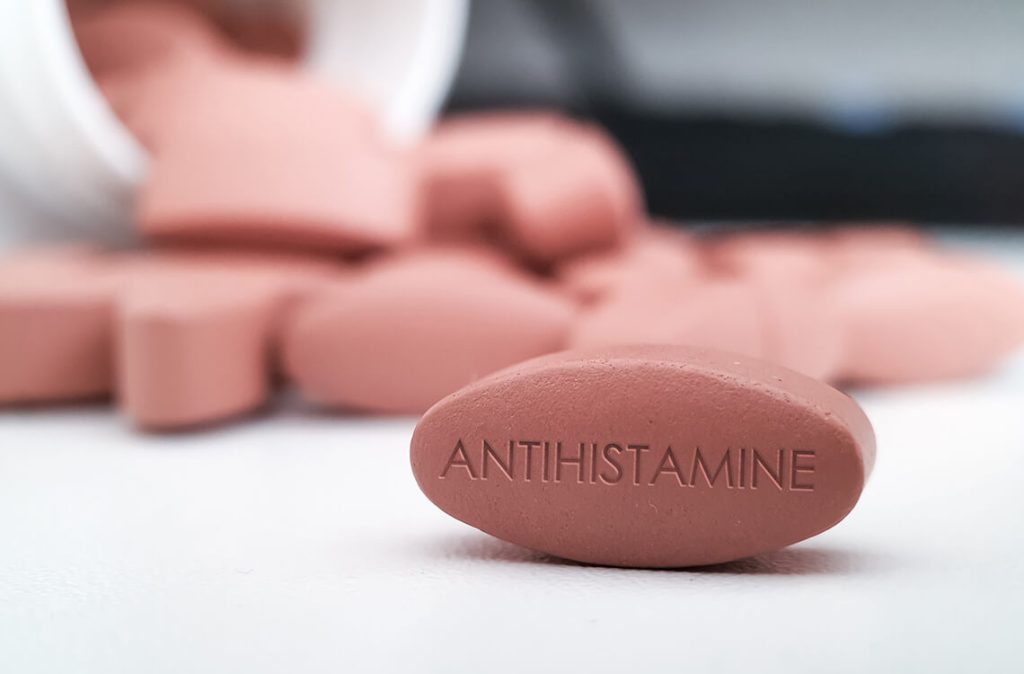Kids get allergies all the time. And that’s where antihistamines come in.
Chances are, you’ve heard of this medication.
But do you know how they work in kids?
Well, we’re here to explain it all.
We sat down with Nazatul Amira Hamzah from Primabumi Sdn Bhd to learn more about the use of antihistamines in kids.
Nazatul is a qualified pharmacist with 10 years of experience in pharmacy practice involving both hospital and community settings.
She currently holds the position of Pharmacist and Key Account Manager at a renowned pharmaceutical company in Kuala Lumpur.
Q1: What are antihistamines?
Antihistamines are a type of medication commonly taken to relieve symptoms of colds and allergies in both children and adults.
No antihistamine is created equal. Some are stronger than others, target certain areas of the body only, and come with their own unique side effects, if any.
There are those that target specific symptoms only and those that address a wide range of symptoms.
In Malaysia, antihistamines are available in the forms of syrup, suspension, tablets, chewable tablets, and nasal sprays.
Q2: How do antihistamines work?
Your body can develop sensitivity to various kinds of allergens.
These can include everyday things such as food, plants, animals, and even medicine.
When exposed to these allergens, your body releases histamine, a chemical crucial for the immune response.
Histamine triggers sneezing, a runny nose, and itchy, red, swollen eyes and skin. This reaction aims to help you expel or remove the allergen.
Antihistamines work by blocking the effects of histamine in different parts of the body.
By doing so, they ease the undesirable symptoms associated with histamine release as mentioned previously, as well as reactions to insect bites or stings.
Q3: Are antihistamines safe for children?
Antihistamines are generally safe for children.
However, parents need to be aware that only certain antihistamines may be approved for use by children of different ages.
For example, fexofenadine is safe for babies as young as 6 months old.
However, desloratadine and cetirizine must never be taken by children younger than one year old.
Unlike cough syrups, antihistamines are a controlled drug.
So any product containing antihistamines can only be supplied by a licensed pharmacist or doctor.
Q4: When should I give an antihistamine to my kid?
You can obtain antihistamines from a doctor or pharmacist as soon as your child starts to show allergic reactions.
They will prescribe the appropriate type of antihistamine that is suitable for your child’s symptoms and age category.
Remember to follow the dosage correctly.
Q5: How long does it take for an antihistamine to work?
Depending on the type and severity of the allergic reaction your child experiences, their symptoms may go away within as little as an hour to a few days.
Q6: Do antihistamines work for all kinds of allergies?
Antihistamines are used to treat the symptoms of mild to moderate allergic reactions.
This includes allergies triggered by food, contact, pollen, animal dander, chemicals, and insect bites or stings.
However, you must seek immediate medical care or call an ambulance if you suspect your child suffers from anaphylaxis.
Anaphylaxis is a life-threatening allergic reaction, and its symptoms include shortness of breath, swelling of the throat or tongue, and unconsciousness.
Do not use antihistamines in this case, as their effects are too slow. Anaphylaxis requires a shot of adrenaline into a muscle for treatment.
Q7: Is it okay to switch from one type of antihistamine to another within a short period of time?
Switching from one antihistamine to another is fine.
However, remember to leave a gap of at least 12 hours before giving your child another type of antihistamine.
That said, make sure to give plenty of time for an antihistamine to work its effects before you switch.
An antihistamine generally takes at least 24 to 48 hours (1 to 2 days) to offer any sort of improvement.
Please talk to your healthcare provider about the most suitable alternative for your child’s symptoms.
Q8: There are plenty of antihistamines out there, and sometimes different pharmacists suggest different types or brands of antihistamines. How do I go about it?
Antihistamines come in three types:
First-generation
- Chlorpheniramine (Piriton)
- Diphenhydramine (Benadryl)
Second-generation
- Cetirizine (Zyrtec)
- Levocetirizine (Xyzal)
- Loratadine (Clarityne)
- Desloratadine (Aerius)
Third-generation
- Fexofenadine (Telfast)
The trademarked names refer to originator brands available in Malaysia.
There are many other unfamiliar, generic brands that offer the same type of antihistamine.
You’ll find these generic brands in most hospitals and pharmacists.
The second- and third-generation antihistamines are less likely to make your child sleepy or drowsy than the first-generation antihistamines.
There are several factors that a pharmacist or doctor takes into consideration when suggesting antihistamines for your child.
These factors include age, how bad the symptoms are, how they’ll take the medicine (syrup, tablet, etc), if it makes you sleepy, and how it tastes.
You’re encouraged to get more information from your pharmacist before giving any medication to your child.
Q9: How long should I administer an antihistamine to my child?
Antihistamines are often prescribed for 3 to 5 days.
However, you may stop giving the medication as soon as your child’s condition improves completely.
Q10: Is it safe to take antihistamines in the long term?
Antihistamines are generally not recommended for long-term use.
Please consult your doctor if your child’s symptoms do not improve or become worse after 3 days of taking an antihistamine consistently.
Additionally, check with your doctor if your child suffers from allergies frequently so that any underlying issues can be addressed more effectively.
Source: Nazatul Amira Hamzah, Pharmacist at Primabumi Sdn Bhd
Disclaimer: The information provided in this article is for informational purposes only and should not be considered as medical advice from Motherhood. For any health-related concerns, it is advisable to consult with a qualified healthcare professional or medical practitioner.
For more insightful stories and fun recipes, stay tuned to Motherhood Story!
